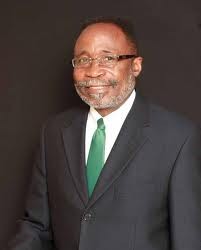Opposition member Julian Fraser has cautioned the BVI Health Services Authority to be considerate of the poor as it tries to improve its financial standing.
Nearly two weeks ago, the Authority’s Chairman John Cline and its Chief Executive Officer Darlene Carthy Baptiste announced a proposed hike in the fees for public health services.
They also disclosed that legal action may be pursued against members of the public who owe the Authority a combined total of US$28 million. Cline went on to lament that a number of elderly patients remain at Peebles Hospital despite being discharged.
On the weekend, Fraser told his Third District constituents that he is concerned about the issue and would not support any change that would make the access to healthcare more difficult.
He said the authorities have a responsibility to ensure that, if changes are being contemplated, programmes should be put in place to assist the poor.“I am concerned. I am concerned because if you recall when the Chairman came up to the House of Assembly for approval, my position was that all health services in the BVI have been of such that – in my view – it’s more like a socialist system than anything else. The cost of healthcare has always been very low and the health professional or the healthcare system has been very accommodating to our people. And I want to make sure that that doesn’t change. If you gonna change it, you have to put in place certain programmes to help those who are in need,” Fraser said.
While he does not think people should pressure the healthcare system if they can pay, Fraser emphasized that it is government’s ultimate responsibility to cater to the medical needs of its people.“I don’t believe for a minute that anyone who has the wherewithal must burden the healthcare system unnecessarily. I don’t care who you are or how much financial resources you have. That resource that you have is one ailment away from you being a pauper. None of us can afford to pay out of our own pockets for one catastrophic ailment. And I don’t want to see any one of you die a pauper because of ailment. The country has a responsibility,” the Opposition member contended.
He continued: “Look at United States. They wanna kill Barrack Obama for his healthcare programme, but it’s a sensible thing. You got people here in the BVI – I know this for a fact – some of who went to America. The doctor already told them what they have to do; you have to take a surgery, you got to come for treatment – but they don’t have the money. So they just stay home and hope for a miracle. That should not happen. Now you have people running around – big talk – don’t care about the little man who is dying.”
At the time the BVI Health Services Authority mentioned the proposed increase in fees, its chairman said the final figures were not yet decided, but would be based on an analysis done in the region.The chairman of the Authority also underscored the importance of government’s long-awaited National Insurance Scheme in order to assist people who may not be able to immediately find moneys to cover their medical expenses.
If all goes according to plan, the insurance scheme should be completed by year end.
Addressing the House of Assembly in September, Health Minister Ronnie Skelton announced that “the current agreement (for the scheme) was signed on 12 March 2010 for a period of 18 months, and extended on 8 June 2012 for a further period of six months.”
Based on figures Skelton also presented in the House, the insurance scheme will significantly over-shoot its initial budget.The minister said: “In June 2006, a one-year contract in the amount of $585,100 was signed with the University of the West Indies, Health Economics Unit (UWI/HEU) to design the system and support its implementation… Madam Speaker, as of August 31, 2012, the Government of the Virgin Islands has paid a total of $1,051,224.34 to the consultant since the commencement of the project.”
In explaining the reasons for the costs adjustments, Skelton made reference to a number of set-backs which include the suspension of the project in July 2007, its transfer from the Premier’s Office to the Ministry of Health and Social Development in August 2008, the renegotiation of the contract, as well as the latest extension for the deadline for completion.














